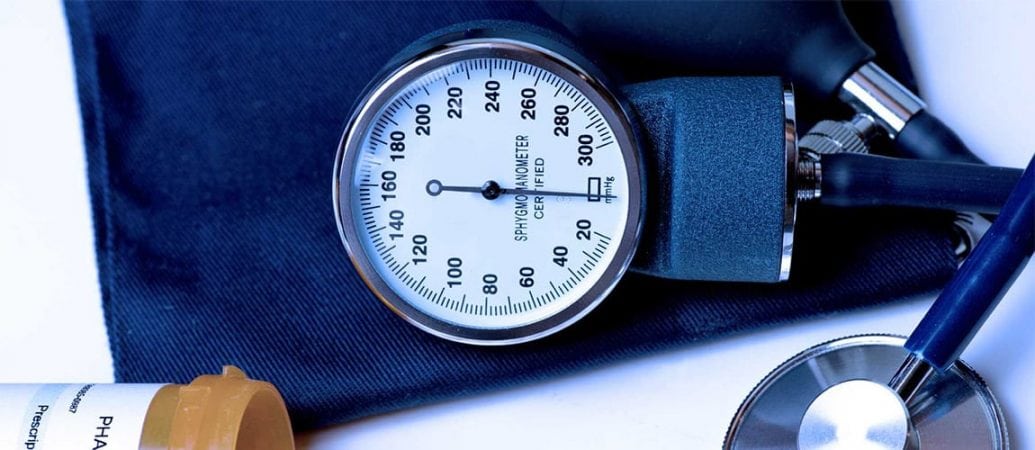Gut Bacteria and Blood Pressure: How the Microbiome Affects Cardiovascular Health
Could poor gut health have a significant impact on hypertension? New research suggests a link between gut bacteria and blood pressure.
High Blood Pressure and Resistant High Blood Pressure: What's the Difference?
 When your heart beats, it creates pressure against the walls of your arteries as a result of your heart pushing oxygen-rich blood through your arteries and to your organs. The measure of this force is known as systolic pressure. Diastolic pressure is the period of rest that the heart takes between pumping the blood. High blood pressure, or hypertension, occurs when the systolic pressure, diastolic pressure or both are consistently too strong.
When your heart beats, it creates pressure against the walls of your arteries as a result of your heart pushing oxygen-rich blood through your arteries and to your organs. The measure of this force is known as systolic pressure. Diastolic pressure is the period of rest that the heart takes between pumping the blood. High blood pressure, or hypertension, occurs when the systolic pressure, diastolic pressure or both are consistently too strong.
As this process continues without treatment, LDL (bad cholesterol) can lead to a build-up of plaque on the artery walls. This inhibits blood flow even further. As the amount of oxygen-rich blood your heart can process diminishes, the lack of oxygen raises the risk for heart failure, stroke and a long range of other cardiovascular issues.
Resistant hypertension occurs when someone with high blood pressure doesn't respond well to treatment. Usually, someone is diagnosed with this condition when they are taking the maximum doses of three different high blood pressure medications and the drugs are providing minimal effects.
If your doctor prescribes more than three medications, you probably have resistant hypertension. This is particularly true when one of the medications is a diuretic, which is intended to remove salt and water from the blood. It's important to get this condition under control since resistant hypertension significantly increases your risks for heart attack, stroke and kidney disease.
The Relationship Between Gut Bacteria and Blood Pressure
The scientific and medical communities have known for some time that the gut microbiome plays an important role in health. While that's certainly true for gut health, it's also true for the health of various systems throughout the body. Just as a healthy gut promotes the healthy functioning of these systems, poor gut health can negatively impact overall health.
In a recent University of Toledo study, researchers linked gut bacteria and blood pressure. The study found that an enzyme found in certain gut bacteria may be responsible for preventing hypertension medication from working in about 20 percent of cases. Through their research, the team found that people with a higher amount of a bacteria called Coprococcus were less responsive to hypertension medication. This held true for people with resistant hypertension who were taking multiple types of medication.
The link between gut bacteria and blood pressure was strengthened when the researchers watched an enzyme in the bacteria break down the medication. This is an important discovery in that it may change how people with resistant hypertension are treated. Rather than switching between medications, which raises the risks of an overdose and frustrates patients, doctors can try new methods.
In addition to leading to new drug treatments, the research may help doctors develop different treatments. For example, they may try influencing gut health in combination with medication. Probiotics and antibiotics may be helpful in controlling the presence of Coprococcus, which will improve the effectiveness of hypertension medication.
How Can You Naturally Lower Your Blood Pressure?
There are plenty of natural ways you can improve the link between gut bacteria and blood pressure while reducing your risk for hypertension. You may still need medication as you get older, but, by taking these steps, you may increase the effectiveness of hypertension treatment. You'll also improve your overall cardiovascular health.
Take a Dietary Supplement
Look for a dietary supplement that's engineered to promote better heart health. A good-quality supplement, such as Cardiochron, will optimize cellular and cardiovascular health. It will also help fight the free radicals that can adversely affect heart health by delivering more antioxidants into your bloodstream. Adding a supplement can improve your sense of wellbeing as it helps you protect your heart.
Eat a Healthier Diet
Primarily, your diet should be comprised of fruits, vegetables, seeds and nuts. Whole grains, lean cuts of red meat, poultry and fish are also staples of a healthy diet. When you do buy processed foods, pay close attention to the nutrition panels on the packaging. Look for products with low sodium, sugar, carbs and trans fats. Try to reduce your soda and juice consumption as well.
Lose More Weight
 When you lose just a few pounds, you'll make it easier for your heart to push blood throughout your body. For every 2.2 pounds you lose, you'll lower your blood pressure by 1 mm Hg. Overweight individuals also face a greater risk of sleep apnea, which also increases the likelihood of hypertension. In this way, losing a few pounds can help you sleep better, improve nighttime respiration and help you improve the health of your heart.
When you lose just a few pounds, you'll make it easier for your heart to push blood throughout your body. For every 2.2 pounds you lose, you'll lower your blood pressure by 1 mm Hg. Overweight individuals also face a greater risk of sleep apnea, which also increases the likelihood of hypertension. In this way, losing a few pounds can help you sleep better, improve nighttime respiration and help you improve the health of your heart.
Get More Physical Activity
Going hand-in-hand with losing weight, it is important to exercise regularly. Getting just 30 minutes of moderate-to-high-intensity exercise each day will help you lower your blood pressure and keep it at a consistently good rate. Try doing something you enjoy, such as hiking, swimming or playing tennis. If you're worried about staying motivated, find a workout partner, join a class or create an inspirational playlist.
Before you make any significant lifestyle changes, you should consult your doctor. Your physician can help you make these changes safely to ensure you will improve your health. Your doctor may recommend other lifestyle changes that will do even more in improving your gut health, heart health and overall wellbeing.





